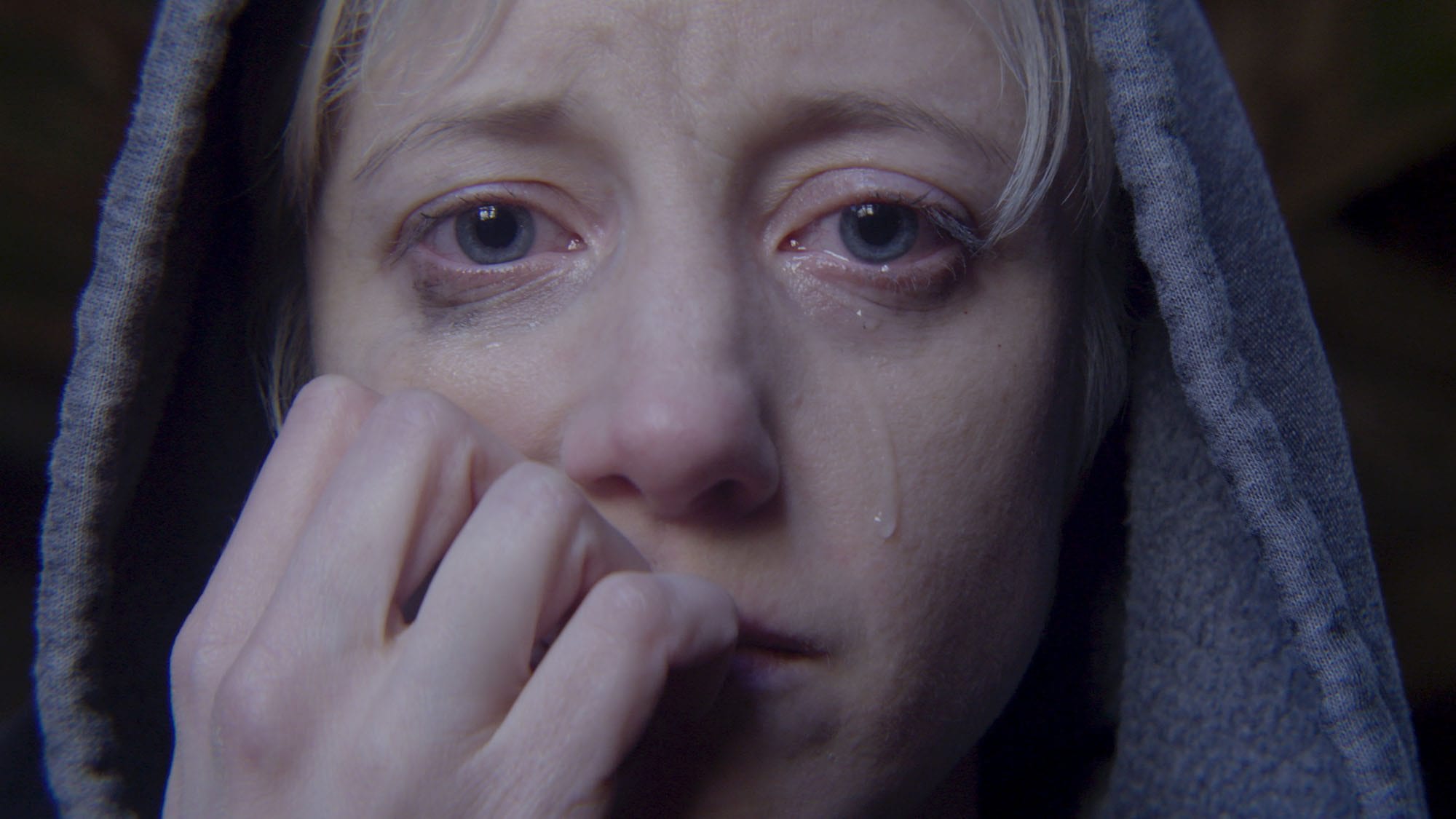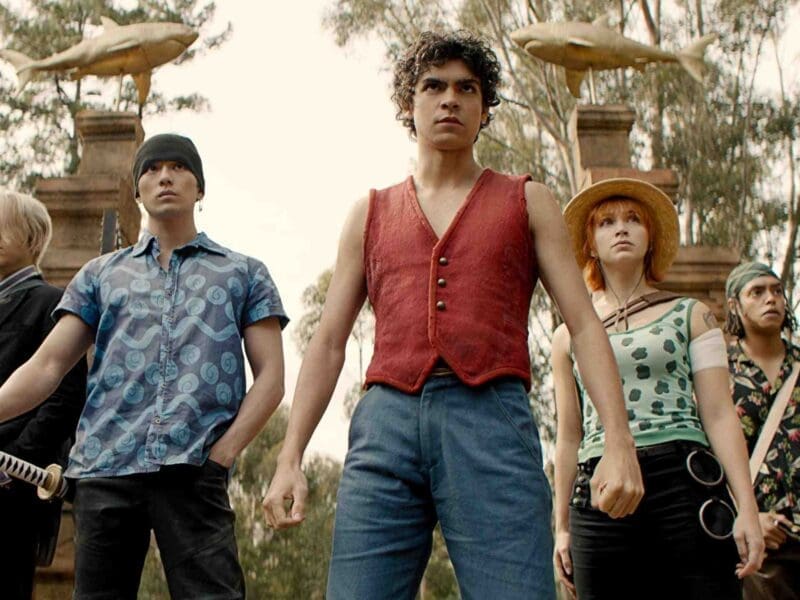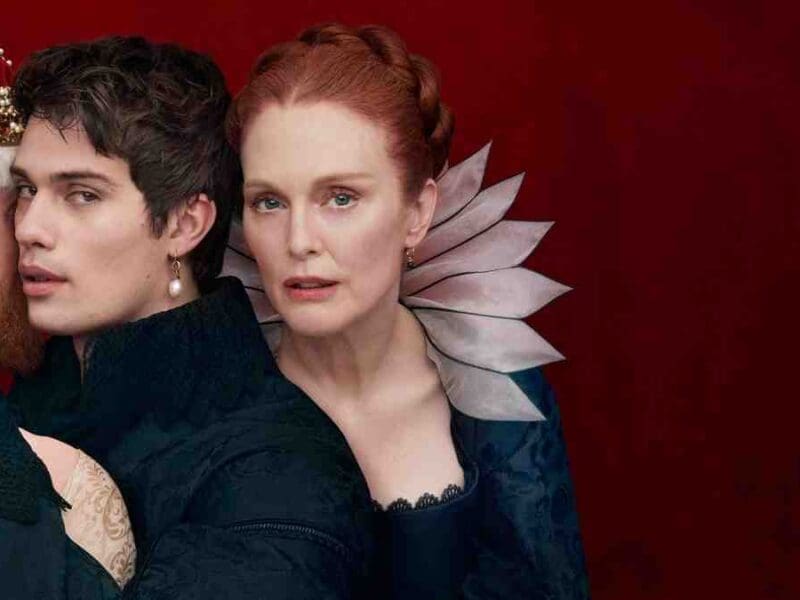
‘Black Mirror’ proves it can still surprise in S4
After being heralded as the second coming of The Twilight Zone for its first two seasons, the third saw Black Mirror losing something in its transition to Netflix. The show was more bloated, with double the episodes, more big-name actors (Bryce Dallas Howard, Benedict Wong, and Kelly Macdonald to name a handful) and some surprisingly well known behind-the-scenes talent ranging from directors like Joe Wright (Hanna) and Dan Trachtenberg (10 Cloverfield Lane) to The Office and Parks and Recreation’s Michael Schur and Rashida Jones. It was by no means a failure of a season, but the critical acclaim Black Mirror garnered previously was noticeably muted this time around. To a degree, high expectations were to blame, though the show’s newest season effectively makes the case that Black Mirror simply needed some time to adjust to its new surroundings.
The show continues to mine social anxiety about the advance of technology to great effect, but this time out there’s a wider range in style & tone even if individual episodes are nearly all explorations on the theme of free will.
“USS Callister,” the star-studded fourth episode of the season, serves as perhaps the most interesting exploration of that motif, and one of the strongest points in the show’s history. Marketed and framed as Black Mirror’s riff on Star Trek, “USS Callister” is actually a disturbingly topical dissection of white male rage. Without spoiling the clever twist of the episode, “USS Callister” has Jesse Plemons (Friday Night Lights) simultaneously doing a spot-on imitation of a cross between William Shatner and Mark Zuckerberg, as the episode shifts between a vintage Star Trek mod of an MMO and the real-world work environment at the company running the MMO.
On the more disturbing end of the free will subject is the Jodie Foster-helmed “Arkangel,” featuring an overly safety-concerned mother (Rosemarie DeWitt) consenting to have a device implanted in her young daughter so she can track her at all times, see what she sees, and even filter out real-life visuals and sounds. Though Foster directs the episode serviceably enough, Black Mirror showrunner Charlie Brooker’s script goes down some questionable roads in regards to the debate over women’s bodily autonomy, with its climactic scene coming across as borderline irresponsible. It’s easy enough to see the point Brooker is trying to make, but the way it’s framed and presented is unfortunately shallow and tactless.
The John Hillcoat-directed “Crocodile” fares much better as it navigates similar territory. Structured like a Hitchcockian thriller, the central question at the heart of “Crocodile” is how far one is willing to go to continue to keep a skeleton in one’s closet. In it, Andrea Louise Riseborough (Birdman) and Andrew Gower (Outlander) play friends who hit a bicyclist when they’re driving back from a rave, and proceed to dump his body into a nearby lake to cover up the deed. Years later, they meet up again because one of them has discovered the bicyclist was married, and wants to send a letter to his wife because she never moved on. The tension in the episode not only comes from the question of what other despicable acts will be committed to keep the bicyclist’s death secret, but also from the parallel story of an insurance investigator (Kiran Sonia Sawar) who seems to fated to intersect with these accidental killers.
Equally tense and brutal is the David Slade-directed “Metalhead,” unquestionably the most stylish episode of the season, which shouldn’t be too surprising given Slade’s credits on Hannibal and his feature debut Hard Candy. “Metalhead” isn’t as deep as most of this season – it’s a vicious, refreshingly fast-paced tale of a woman (Maxine Peak) on the run from a killer robot dog, shot in hyper-saturated black & white. Similarly efficient but not as striking is Tim Van Patten’s “Hang the DJ,” a digital rom-com of sorts that’s enjoyable and sweet but falters with its ending, which looks like a Match.com commercial, pulling the rug out from the rebellion motif running through the bulk of the episode.
But where Black Mirror most proves it knows how to evolve and poke fun at itself is the teasingly named “Black Museum.” Rather than play in the Twilight Zone sandbox Black Mirror sticks to for most episodes, “Black Museum” goes Tales from the Crypt with its gallows humor and the carnival barker performance of Douglas Hodge (Tulip Fever), who plays the Black Museum curator. Hodge masterfully straddles the line between charming and utterly contemptible, giving guest Letitia Wright (My Brother the Devil) the sinister stories behind three of the most prized artefacts in his museum of crime – while also cheekily inserting visual references to prior Black Mirror episodes (the museum’s name may as well be a meta-reference to the show itself). Right up until its final moments, it’s difficult to discern which of the two characters is the spider and which is the fly, and somehow it’s also the funniest episode the show has produced since season two’s “The Waldo Moment.”
Season four of Black Mirror is fairly consistent and has far more high-water marks than its predecessor but more importantly, “Black Museum,” and to a lesser extent “USS Callister” prove the series can still surprise and subvert expectations. Unlike season three, these episodes show that Black Mirror’s best moments might not be behind it, but still looming ahead.







